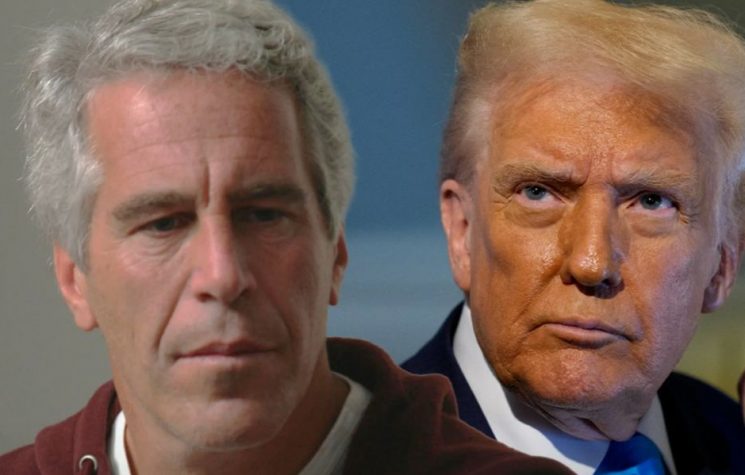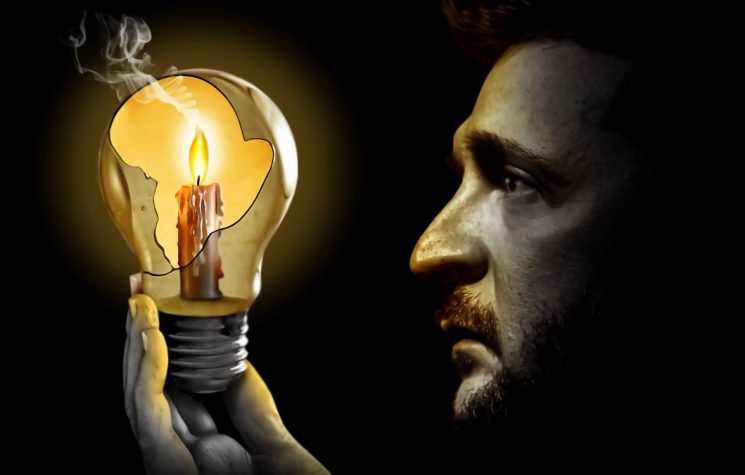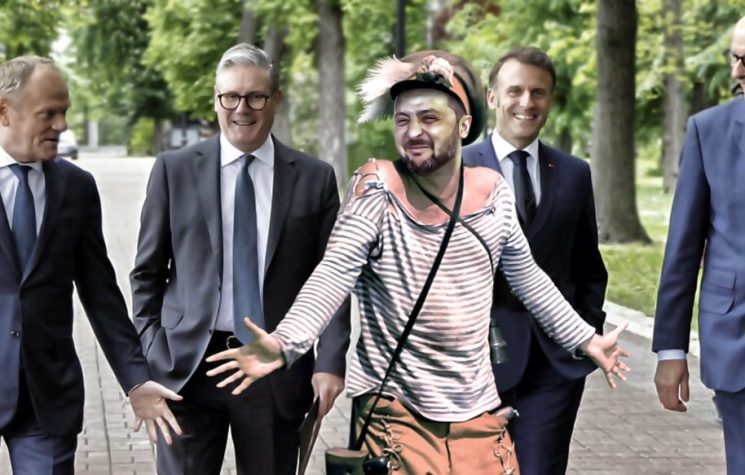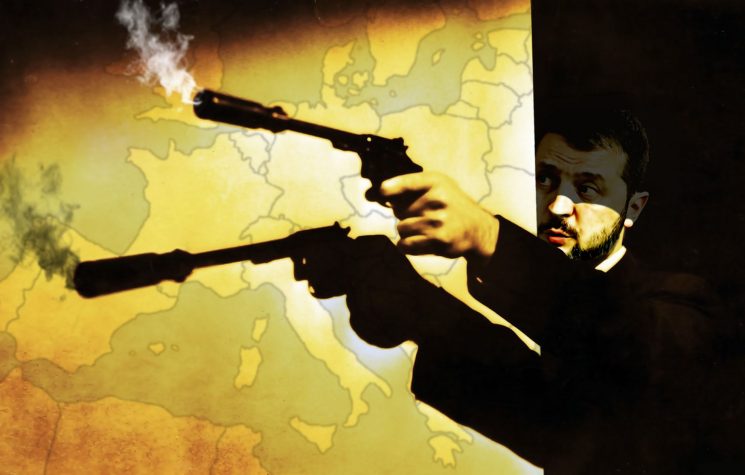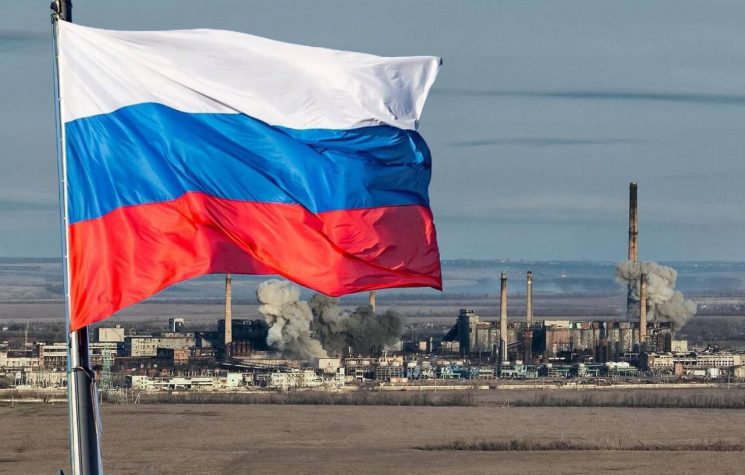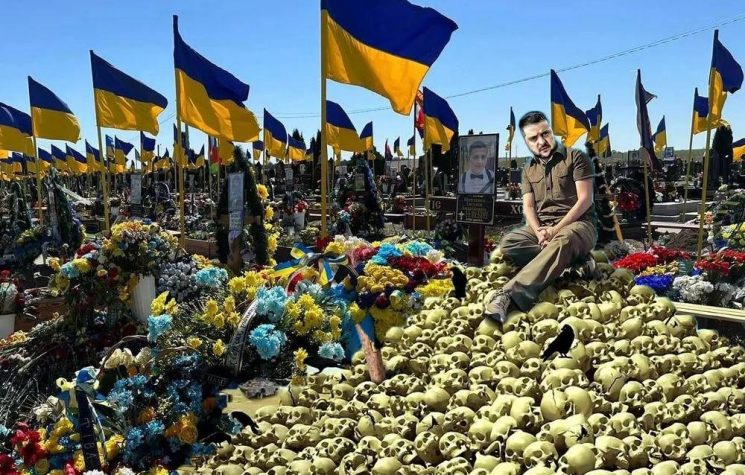There is really very little incentive on the Russia side to cede anything as militarily they have the upper hand.
Contact us: info@strategic-culture.su
Can Trump really pull off a peace deal in his first week in office with Ukraine and Russia? Initially, when he spoke of this during the earlier part of the war, the picture was a lot simpler and many commentators and analysts bought into his idea: starve Ukraine of military aid and force Zelensky to accept the inevitable while threatening Putin with doubling the aid to Ukraine. Surely, on this one, the element of surprise was dashed when he told a number of journalists the master plan.
Recently, the subject of a Ukraine peace deal has come to the fore once again when Trump spoke with Zelensky over the phone and, despite the Ukrainian President speaking very positively about the talk, no details were revealed about what was on the table. What was leaked however was that Trump expected Zelensky to withdraw his troops from the four key areas which Russia considers to be its own regions – which until now was always off the table.
It could signify a possibility that the super deal that Trump reckons he can pull off might have legs. Yet there are a number of complications to factor in. Firstly, there is really very little incentive on the Russia side to cede anything as militarily they have the upper hand. The three key points are they want to keep the four regions in dispute, they want a denazification of Ukraine, promises that it can never be a NATO country and last of all that a deal is signed with a new, democratically elected president, as, it should be stressed that Zelensky’s mandate has legally expired This last point is important as due to the track record on the West’s side of not playing fair when they signed the Minsk Agreement, the next peace deal has to be water tight.
But at the heart of this is the problem of Zelensky himself. Will Trump convince Putin that Zelensky needs to stay? Putin might bend to this one condition if Trump is the one doing the bidding while at the same time NATO is being brought into line by a new U.S. president who has no patience for the foibles of some its key players. Yet at the same time, Zelensky could so easily see himself being a spectator to a bigger deal. Both sides at a certain point could argue that Zelensky is really the heart of all the problems and has been the main obstacle to ever getting a deal signed. Earlier on in the conflict he was poised to sign a peace deal only for Boris Johnson, then the UK Prime Minister, to be jetted in to snatch victory from the jaws of defeat and scupper the deal. Many might argue if Zelensky was tougher and he placed the country before himself, he might have stood up to the West’s bullying and signed the Istanbul agreement regardless.
Johnson’s role at the time was to serve the interests of both the U.S. and NATO in equal measure but these days it’s hard to see who he is representing as he turned up recently at the Republicans’ convention which inaugurated Trump officially as the presidential nominee. Remarkably, while Trump didn’t see Nigel Farage – someone who the former leader insists is a “friend” – he gave Boris plenty of facetime. Is Boris now the new unofficial envoy of western elites brought in to handle Trump? Or, perhaps less edifying, he is simply on Zelensky’s payroll as an international PR agent provocateur.
In either case, it’s hard to see the call to Zelensky and the meeting with Trump as merely a coincidence. Zelensky and a cabal of NATO elites are rallying behind him and Boris to try and steer Trump away from making a hasty and erroneous decision in Ukraine. The problem is that the two camps can’t agree and so this is confusing things even more for Trump who never reads briefing notes and has the attention span of a 5-year old in meetings with top officials.
And to make matters even more complicated, J. D. Vance’s stance on China is pushing Trump to create a new global import tax hike to hit both China and the EU simultaneously while the Trump administration is to focus all its foreign policy gusto on the demise of the Chinese economy. This, in itself, presents problems when Trump will look to Putin for a quick fix in Ukraine as a new geopolitical layer of issues will be unpeeled making a quick deal almost impossible. What is more likely is that Trump will achieve a ceasefire only.
No wonder both Russia’s UN ambassador and its official spokespersons both snubbed a quick fix solution by Trump as near on impossible. In the case of the latter, they even went as far as to raise the point of the Middle East peace process which Trump made a dog’s breakfast of while in office. Ouch. That must have hurt.





























